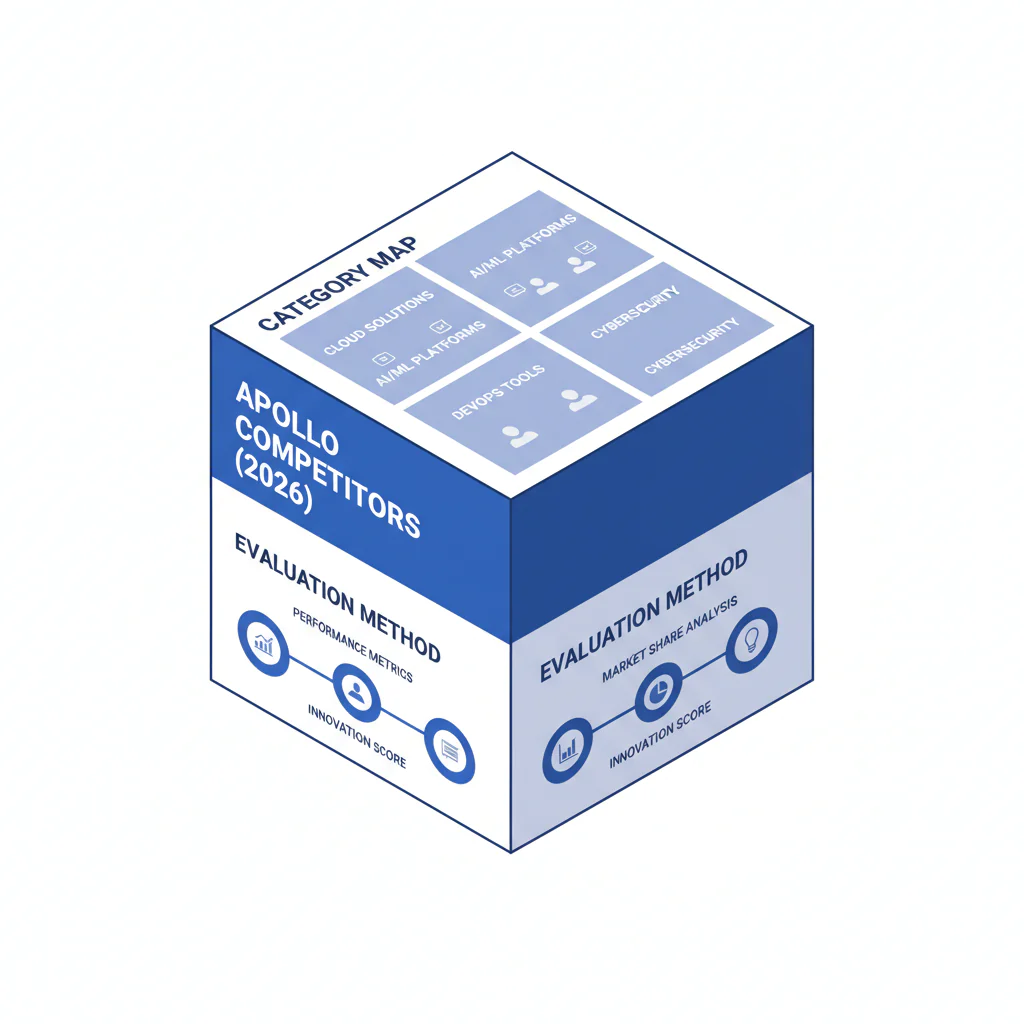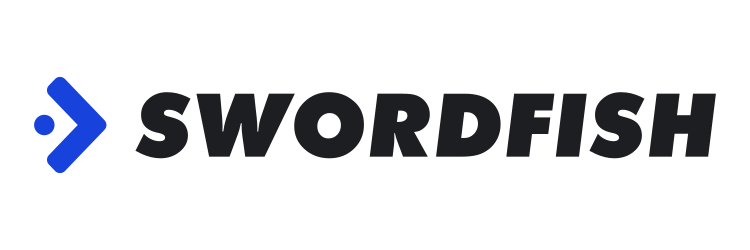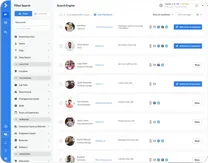
Apollo Competitors (2026): Category Map + Evaluation Method
Byline: Swordfish.ai Editorial Team. Last updated: Jan 2026. Disclosure: Swordfish.ai publishes this page and sells contact data tooling; run your own test and do your own procurement diligence.
Who this is for
- Outbound and RevOps buyers who need a competitor map that survives procurement and doesn’t collapse the first time it touches a messy CRM.
- Anyone who has been burned by contract terms, per-seat expansion, credit throttles, and integrations that quietly corrupt data.
- Teams splitting a stack into sequencing, data providers, and enrichment (the required categories of tools) rather than buying another suite and hoping it behaves.
Quick Verdict
- Core Answer
- Apollo competitors fall into categories of tools: sequencing tools (run outbound), data providers (emails/phones), enrichment tools (CRM hygiene), and phone-first options (dial efficiency). Pick the category that fixes your bottleneck first, then test only that layer.
- Key Stat
- Key insight: budget leaks usually come from contract lock-in, per-seat expansion, credit throttling, and the downstream cost of data decay (bounces, wasted dials, and CRM contamination).
- Ideal User
- Buyers who can run a controlled test on their own list and enforce stop conditions before any annual commitment or org-wide sync.
If you searched for apollo competitors because Apollo isn’t doing a specific job, start with the category table below and keep the rest of your stack constant while you test.
Competitor map framework: Apollo competitors by job-to-be-done
This page uses the Competitor map framework: map vendors to the job they perform, then swap one layer at a time. If you change sequencing, data, and enrichment at once, you won’t know what caused the result, and you’ll still be paying for the mistake.
- Sequencing tools: execute touches, manage replies, enforce workflow.
- Data providers: supply emails, mobile numbers, and direct dials, with different refresh and validation approaches.
- Enrichment tools: maintain firmographics/technographics and prevent CRM drift.
- Phone-first workflows: optimize for dial outcomes when email is saturated or deliverability is fragile.
For the broader category view, Apollo.io alternatives shows how stacks split by job. For a direct swap frame, Swordfish vs Apollo focuses on what changes when you change the data layer.
Apollo competitors list by category (neutral shortlists)
This is classification, not endorsement. Use this list to build a shortlist, then run the test plan below before you let anything write back to your CRM.
| Category | What you’re buying | Commonly evaluated vendors | Primary buyer risk (qualitative) |
|---|---|---|---|
| Sequencing tools | Cadence execution, replies, tasks, multichannel workflow | Apollo, Outreach, Salesloft, HubSpot Sales Hub | Workflow lock-in and operational dependence on one UI. |
| Data providers | Emails, mobile numbers, direct dials, match rate on your ICP | Swordfish.ai, ZoomInfo, Cognism, Lusha | Data decay and overconfidence in match rates that don’t hold on your segments. |
| Enrichment tools | Firmographics, technographics, routing fields, CRM hygiene | Clearbit, ZoomInfo, Apollo | Field overwrites and duplicate creation that break routing and reporting. |
| Phone-first workflows | Dial efficiency, prioritization of reachable numbers, rep time saved | Swordfish.ai, Cognism, ZoomInfo | Rep time loss if numbers aren’t current or aren’t prioritized for reachability. |
What Swordfish does differently
- Ranked mobile numbers / prioritized dials: when multiple phone candidates exist, Swordfish prioritizes numbers intended to improve reachability so reps waste fewer dial attempts.
- True unlimited / fair use: usage is positioned around unlimited access under fair-use expectations, reducing credit anxiety and “stop-work” behavior mid-campaign. Confirm fair-use boundaries during procurement (automation limits, rate limiting, and bulk export rules) so you know what “unlimited” means in practice.
If you’re trying to separate vendor claims from what matters operationally, best contact data providers is a quicker starting point than demo calls.
Checklist: Feature Gap Table
| Hidden cost area | What to inspect | Failure mode you pay for later |
|---|---|---|
| Contract terms | Auto-renewal, notice window, minimum seats, data export rights | You can’t exit when the channel shifts; you pay for shelfware or a tool you no longer trust. |
| Seat-based pricing | Which roles require paid seats (admins, analysts, ops) | Governance becomes optional because it costs money; the CRM degrades quietly. |
| Credits and “reveals” | What counts as billable (view, export, validation, retries) | Teams under-verify and over-send; bounces rise and domain reputation takes the hit. |
| Data refresh and decay | Recency signals, validation method, number status freshness | You buy a snapshot; performance fades and the vendor blames your “use case.” |
| Integration behavior | Field mapping, dedupe logic, overwrite rules, admin audit logs | Bad writes pollute your CRM; cleanup becomes recurring work with no owner. |
Integration headaches to expect (and how to audit them)
- Overwrite collisions: enrichment writes can stomp rep-owned fields. Require explicit overwrite rules and document the “source of truth” per field before any bulk sync.
- Dedupe failures: if identity resolution is weak, you’ll create duplicates that break routing and inflate pipeline attribution. Test dedupe behavior on messy, real records, not net-new leads.
- Audit gaps: when a field changes, you need to know what system changed it and when. If the vendor can’t support admin audit logs and field-level change history, assume disputes and cleanup later.
- Sandbox blindness: vendors demo against clean data. Run a limited sync in a sandbox or a tightly scoped segment before you let it touch production objects.
Decision Tree: Weighted Checklist
This is a priority order based on common outbound failure points: deliverability damage, reachability waste, and integration fallout. No points, no vanity scoring.
- Highest weight: Deliverability risk controls (validation gates, bounce handling). If this fails, the tool creates damage outside its own UI.
- Highest weight: Phone reachability outcomes (mobile/direct dial usefulness). If this fails, you pay in rep time and missed connects.
- High weight: CRM write-back safety (dedupe, overwrite rules, admin audit logs). If this fails, reporting becomes unreliable.
- Medium weight: Workflow friction (prospect to sequence time). If this fails, adoption decays and managers compensate with pressure instead of fixes.
- Medium weight: Commercial mechanics (seat creep, renewal controls, exports). If this fails, procurement becomes a recurring incident.
- Lower weight: UI preferences. Use these only as tie-breakers after risk controls pass.
Troubleshooting Table: Conditional Decision Tree
- If your bottleneck is sequence execution (touches are missed, replies aren’t handled): evaluate sequencing first; keep the data provider constant during the test.
- If your bottleneck is reachability (bounces, wrong numbers, low connect rate): evaluate data providers and phone-first workflows first; keep the sequencer constant.
- If your bottleneck is CRM quality (duplicates, stale titles, unreliable routing): evaluate enrichment first; define overwrite rules before any sync expansion.
- Stop Condition: halt rollout if you cannot (a) document suppression/opt-out handling in your process, (b) configure dedupe/overwrite rules to prevent CRM contamination, (c) obtain a workable export/delete pathway for data governance, or (d) confirm admin audit logs for write-back changes.
How to test with your own list
- Pick one bottleneck: deliverability, reachability, or CRM hygiene. Mixing outcomes hides causality.
- Establish a control: keep your current tool as baseline and swap only one layer (sequencing or data or enrichment).
- Sample a real slice: use a segment that matches your ICP and recent activity so you measure current reality.
- Run parallel enrichment: enrich the same list with each shortlisted provider; record match/no-match and which contact methods appear.
- Gate before outreach: apply your validation rules consistently; treat bounces and spam complaints as defects.
- Run a fixed calling block: same reps, same hours, same persona band; log connects, wrong numbers, and voicemails reached.
- Inspect write-back impact: review duplicates created, overwrites applied, whether changes are auditable, and confirm you can obtain a DPA/sub-processor list and retention/deletion terms before you expand scope.
- Decide with pre-set thresholds: use your baseline as the yardstick and require clear improvement on the chosen bottleneck before committing.
If you need a safer starting point for sourcing and validating addresses, use an email finder workflow with validation gates instead of bulk exporting and hoping.
Evidence and trust notes
- Update stamp: Jan 2026.
- Method: category mapping using the Competitor map framework, then controlled testing on your list to avoid vendor-specific anecdotes.
- Variance explainer: outcomes vary by geography, seniority, and industry because data availability and refresh cycles differ by segment; high-churn roles and international regions often behave differently than stable roles and domestic regions. Measure match and outcomes on your ICP, not on generic claims.
- Procurement packet: request a data processing addendum, sub-processor list, data retention/deletion terms, export pathways, and admin audit logs. If a vendor can’t explain sourcing and update cadence, assume you’re paying for decay.
For regulatory context, use the GDPR overview, the FTC CAN-SPAM compliance guide, and FCC guidance on telemarketing and robocalls.
FAQs
Who competes with Apollo?
Apollo competes across sequencing, data providers, and enrichment. The practical competitors depend on whether you’re replacing outreach execution, reachability, or CRM hygiene.
What’s the best Apollo alternative?
The best alternative is the category that fixes your bottleneck. If your issues are bounces and wrong numbers, replace the data layer first and keep sequencing constant so you can measure the change.
Do I need sequencing or data?
If cadence execution is fine but connects are poor because contacts are invalid, you need better data. If data is adequate but touches aren’t executed consistently, you need sequencing.
What’s the difference between sequencing and enrichment?
Sequencing runs the outreach workflow. Enrichment maintains record attributes so targeting, routing, and reporting stay accurate.
What is a phone-first tool?
A phone-first approach is built around dialing outcomes and reachability, typically emphasizing mobile numbers/direct dials and reducing wasted attempts.
How do I choose?
Start with a competitor map, shortlist by category, then run a controlled test on your own list with stop conditions for compliance and CRM write-back safety.
Next steps (timeline)
- Today (30 minutes): classify your issue using the categories of tools and document the single bottleneck you’re trying to fix.
- This week (half day): shortlist by category using the table above and review Apollo.io alternatives to confirm you’re comparing the right layer.
- Next 7 days: run the controlled list test and record outcomes; if you’re deciding specifically between Apollo and Swordfish, use Swordfish vs Apollo as the frame.
- Before rollout: lock down overwrite rules, dedupe policy, suppression handling, export/delete pathways, and audit logging; then expand only if the bottleneck materially improves.
Primary CTA: See Phone‑First Options
Secondary CTA: Download the Competitor Map
Compliance note
Choose tools that support compliant outreach and opt-out handling.
This page is for informational purposes and does not constitute legal advice. Validate your outreach practices, consent/legitimate-interest basis, suppression handling, and record-keeping with qualified counsel and your internal compliance team.
About the Author
Ben Argeband is the Founder and CEO of Swordfish.ai and Heartbeat.ai. With deep expertise in data and SaaS, he has built two successful platforms trusted by over 50,000 sales and recruitment professionals. Ben’s mission is to help teams find direct contact information for hard-to-reach professionals and decision-makers, providing the shortest route to their next win. Connect with Ben on LinkedIn.


 View Products
View Products



